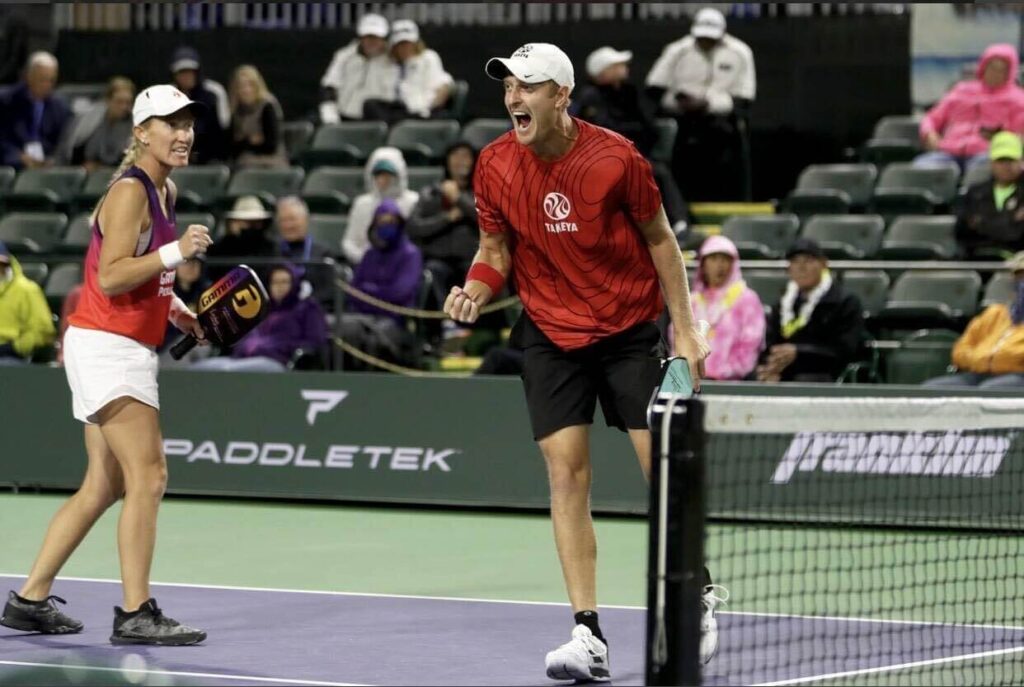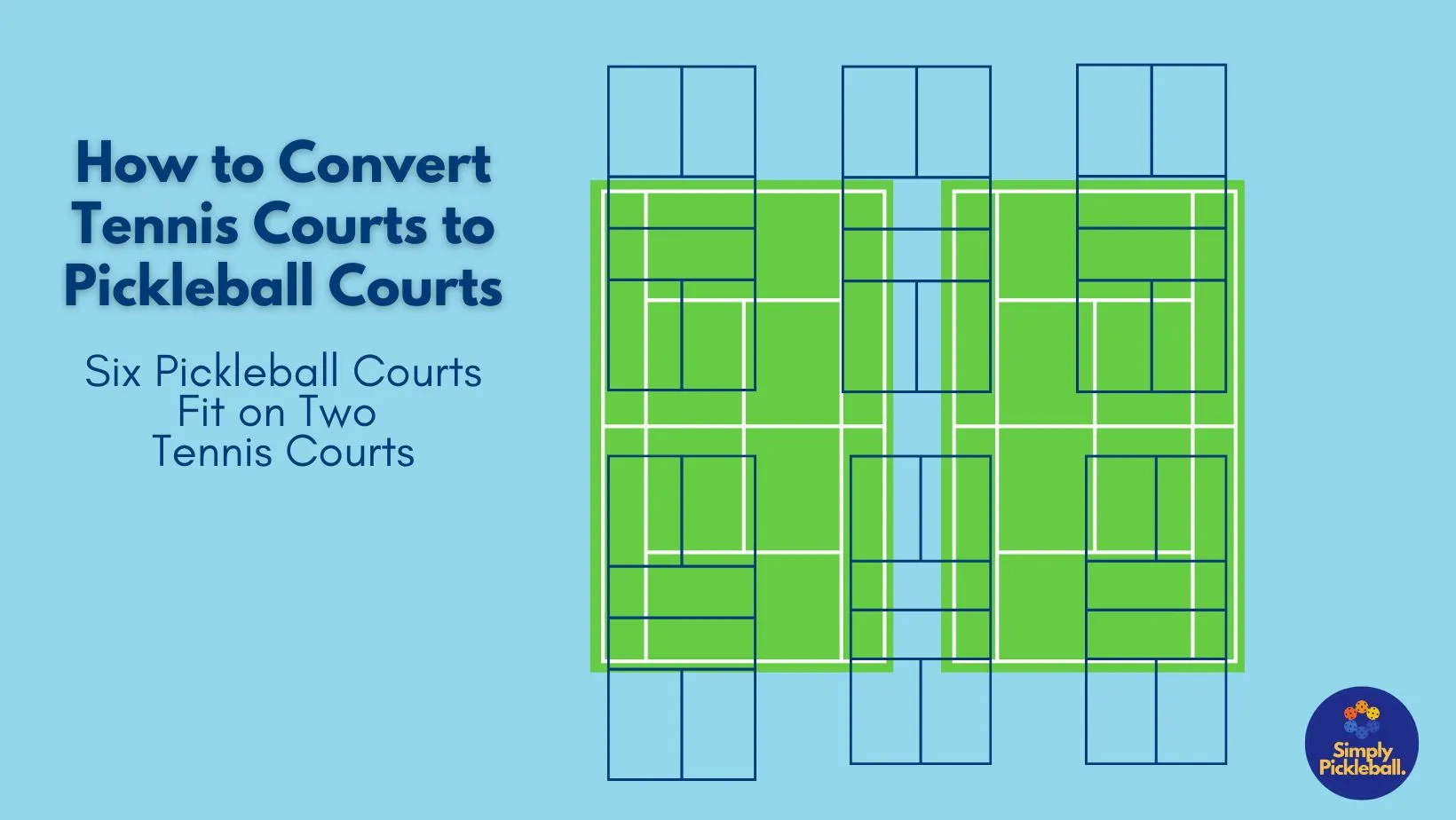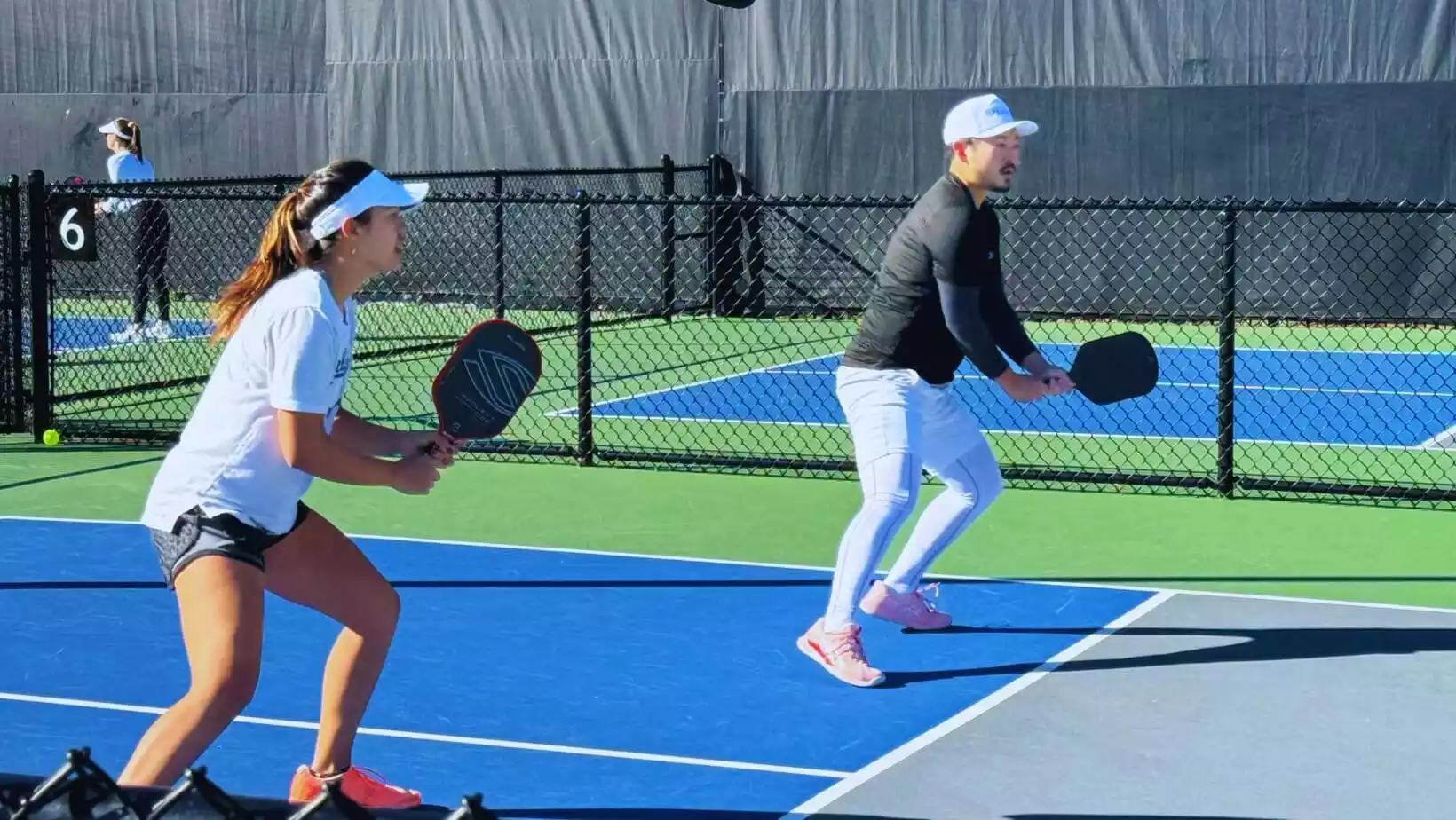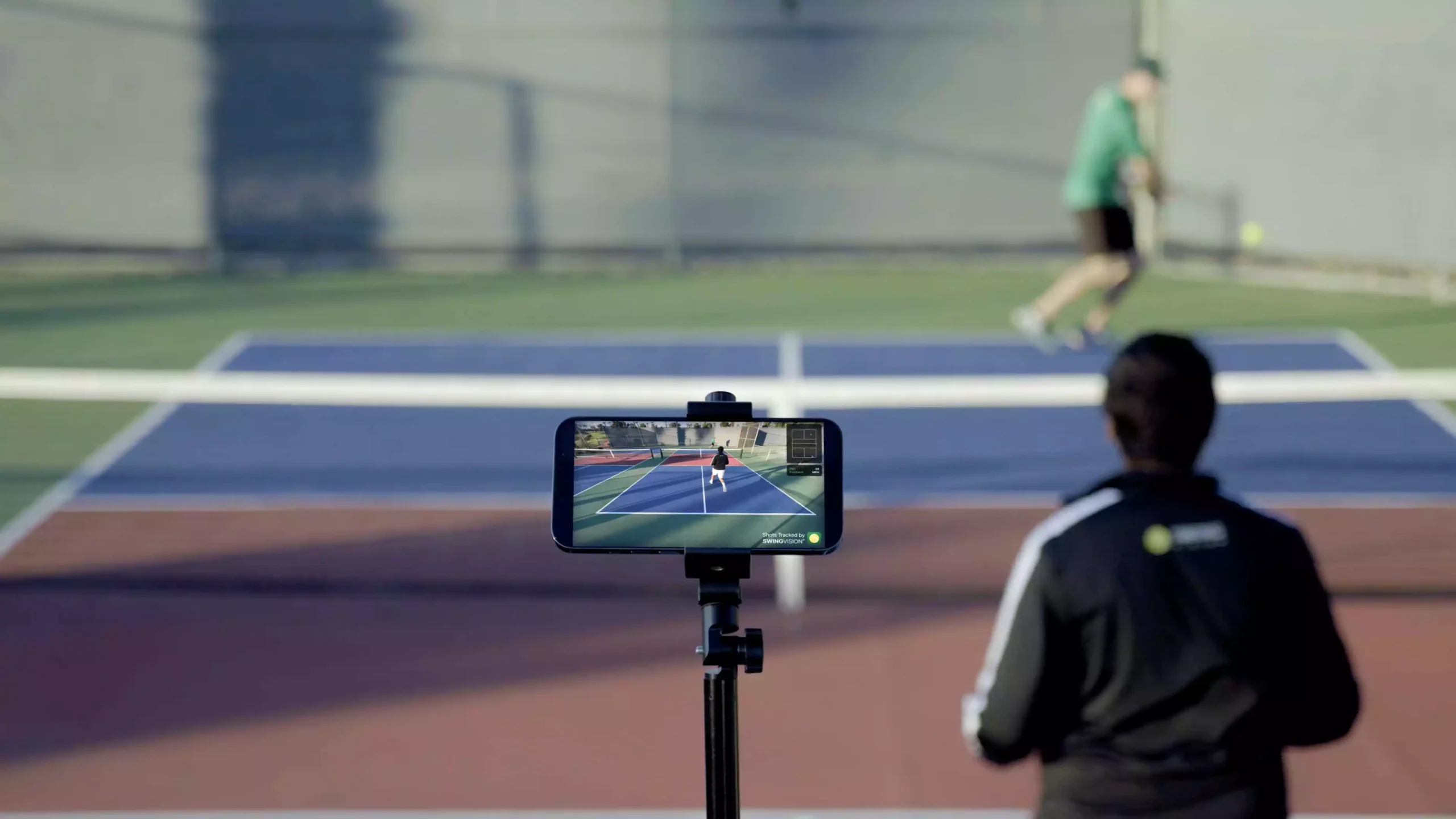Last updated on February 22nd, 2024 at 05:07 am
Have you ever seen Lindsey and Riley Newman play pickleball mixed doubles? They are two of the best pickleball players on the planet and are highly entertaining. They are also a great case study in mixed doubles communication. If you watch closely, you’ll see they can get irritated with each other (Riley more than Lindsey). It might be an occasional eye-roll, snarky comment, or other visible tell that they’re unhappy with their partner’s performance. It’s not uncommon behavior for mixed doubles teams as well as siblings. If you regularly play pickleball mixed doubles with the same partner, you know communication can be challenging. This is not uncommon behavior for mixed doubles team, as well as siblings.
People react differently to negative feedback. Some, like Lindsey and Riley Newman, seem to thrive on it. For others, especially recreational players, it can cause them to get distracted, make mistakes, and ultimately break up as pickleball partners.
Do you have dreams of becoming a pro pickleball player? Or maybe you just want to get through a match with your partner without arguing with them. For either scenario, you must improve communication with your pickleball partner. Before we get into suggestions and strategies to improve your communication, let’s look closely at how Lindsey and Riley Newman developed their mixed doubles communication.
Table of Contents
Sibling Rivalry into Elite Pickleball Duo
We interviewed Lindsey Newman on The Simply Pickleball Podcast and got an inside look at her relationship with her brother and pickleball partner, Riley Newman. I wouldn’t describe them as the model of perfection for mixed doubles communication. However, they have a system that works well for them.
Out of seven siblings, Lindsey and Riley were the most competitive. They would compete against each other in many sports, including ping pong and tennis. Being a bit older, Lindsey usually beat Riley in doubles tennis.
Lindsey told us that Riley “would get so mad that he would actually pick up a tennis ball and hit the ball at me as hard as he could. We got into a lot of fights growing up about who won and who lost, that was a bad line call, you’re a cheater, you don’t know the score, and things like that”.
Lindsey Newman Podcast on YouTube:
Arguing and sibling rivalry aside, Lindsey and Riley enjoyed spending time together. Lindsey always remembers that most importantly, “pickleball was fun, but it was a way to spend time with Riley.” As they grew up and discovered pickleball, it was natural that they would become mixed doubles partners.
Their competitive spirit, honed in men’s doubles and sibling rivalry, translated well into their mixed doubles play. They immediately rose to an elite level, playing against the best players in the world in the PPA and MLP. They have been matched against Ben Johns and Anna Leigh Waters many times.
Mixed Doubles Communication: Newman Style
I recently rewatched a few matches Lindsey and Riley played against Ben Johns and Anna Leigh Waters. My first observation is that pickleball is hard, especially professionally. Lindsey and Riley played great, but it was clear that they had their hands full with Ben and Anna Leigh.
What they did well:
When they’re playing well and winning points, they are very positive. You’ll see a lot of smiles from Lindsey, paddle taps, and eye contact, along with positive affirmations from Riley. Momentum is a significant factor in pickleball; you want to keep the good vibes going. Riley is a crowd favorite (one of my favorites) and can feed off their energy to win points.
Challenges:
Most shots were hit at Lindsey, away from the dominant player, a common strategy in mixed doubles to challenge the other team. This puts extra pressure on Lindsey and forces Riley (the stronger player) to cover 75% or more of the court. When you’re up against the defense of Ben Johns and Anna Leigh, having a male partner like Riley, who is expected to dominate, doesn’t always guarantee victory. Since Lindsey gets most of the shots, math says she’ll make the most mistakes. Mixed doubles teams of almost any level can relate to this.
However, their communication changed quickly when they started losing points. The paddle taps and eye contact disappeared, along with the smiles. I’m guilty of these things as well, as I’m sure many of you are, too. But what happens when it starts affecting your game? The unforced errors start adding up, resulting in lost points and games.

It is a good reminder that pickleball is a game; it’s supposed to be fun! So, what are some good ways to improve your mixed doubles communication and keep the game fun for everyone?
How to Improve Pickleball Communication
Avoid eye-rolling, sulking, or other forms of contempt
It can be frustrating in a close game where your partner misses a seemingly effortless shot. You see the ball going out and yell “OUT,” but they still hit it (and their shot goes out). Replacing the eye-roll with a genuine “good try” or “great shot” will go a long way towards getting that shot right in the future.
Strategy, not coaching. Is there a difference?
Unsolicited coaching is frowned upon during gameplay. That’s for practice sessions and drills. What about advice on strategy? I think that depends on the dynamic with your partner and the tone when offering suggestions. Maybe one of your opponents is standing too far inside the baseline after serving. Giving your partner a heads-up to aim for the feet is okay. However, I would advise against criticizing them for not aiming for their feet AFTER they lose a point.
Shots down the middle
How often have you seen a shot go straight down the middle without either player taking a swing? I get frustrated just thinking about that. An easy fix is for the dominant player to call out who’s got it. You’ll hear this a ton in pro pickleball. Replace two blank stares with a simple “You” or “Me” for close shots.
Avoiding double faults begins with clear communication before the serve and understanding each other’s playstyle. Communicating effectively can turn a huge serve into a strategic advantage rather than just a show of power.
Celebrate small victories
You’re down 0-7 and can’t win a point. Nothing is going right. On the next point, the ball hits the top of the net, pauses, and falls into your opponent’s kitchen. You win the point! It’s a good opportunity to replace “it’s about time” with “there we go!” Pickleball is a game of momentum.
Capitalize when things go your way and use that momentum to win more points. Celebrate the small victories to put yourselves in a better position for the rest of the match. Even in a tie-break situation, celebrating small victories can shift momentum in your favor.
Body language
Can body language predict the outcome of the game? I think having a good pickleball “poker face” is important. By poker face, I mean not showing your opponents or partner any weakness. When you drop your head, hit your paddle, throw your hands in the air, or other similar signs of defeat, you tell your opponents they have the best of you. This will give them positive energy and momentum. You’re also signaling your partner that you’re struggling and putting extra pressure on them.
Even when you’re down 0-10, look confident and try to win that next point. Fake it till you make it!
When to tap paddles?
Do you paddle-tap after every point? Only after you win a point? Or never? Mixed doubles teams are all over the map on this one. Consistency is a good rule of thumb, even when you’re not playing your best. Let’s say you paddle tap after every point, but decide not to after your partner misses a shot. It’s probably not a good idea, even if you’re frustrated. Sticking with the paddle tap and a “let’s get ‘em” is a more productive approach.
Take responsibility
When we’re down in a match, I tend to press. I take low-percentage shots and poach a little more. When I take the aggressive line and miss the shot, I usually say, “My bad.” My partner knows I was trying to make something happen. If, instead, I said something like, “Well, what other choice do I have?” That sets an adversarial tone.
Pickleball Communication with Yourself
Solid pickleball mixed doubles communication starts with how you talk to yourself. I’ve played many games where the odds of winning were slim. I try to pump myself up by saying things like “You got this, “”Let’s go,” etc. That positive self-talk converts into body language and shows my opponents that I’m not afraid. It also helps boost my partner’s confidence.
Positive self-talk helps you think more clearly. I saw an excellent example while watching the Lindsey/Riley vs Ben/ALW match. Strategy is a fundamental part of pickleball, especially in mixed doubles. You must constantly adapt to your opponents and partner to find and exploit any edge you can. Riley and Lindsey struggled in their first game and were often out of position. They took a time out and switched sides when they came back. This change helped them win the next match.
I’m not sure if Riley or Lindsey decided to take the time out, but it resulted from good pickleball communication with themself. They put their emotions aside and identified a weakness in their opponents to exploit.
Pickleball Mixed Doubles Communication: Conclusion
Good communication is essential to improve at mixed doubles in pickleball. Becoming a good partner involves more than just skill; it requires empathy, understanding, and adaptability on the court. Playing with someone who shares the same level of commitment and communication skills can dramatically improve your game.
The only point that matters is the next one. If you can stay in the moment and stay positive, you and your partner, sharing the same court, can win points and games you thought weren’t possible. Staying positive also makes the game more enjoyable for everyone involved. Remember, it is just a game – have fun!
Join thousands of fellow pickleball players from around the world. Subscribe today!








